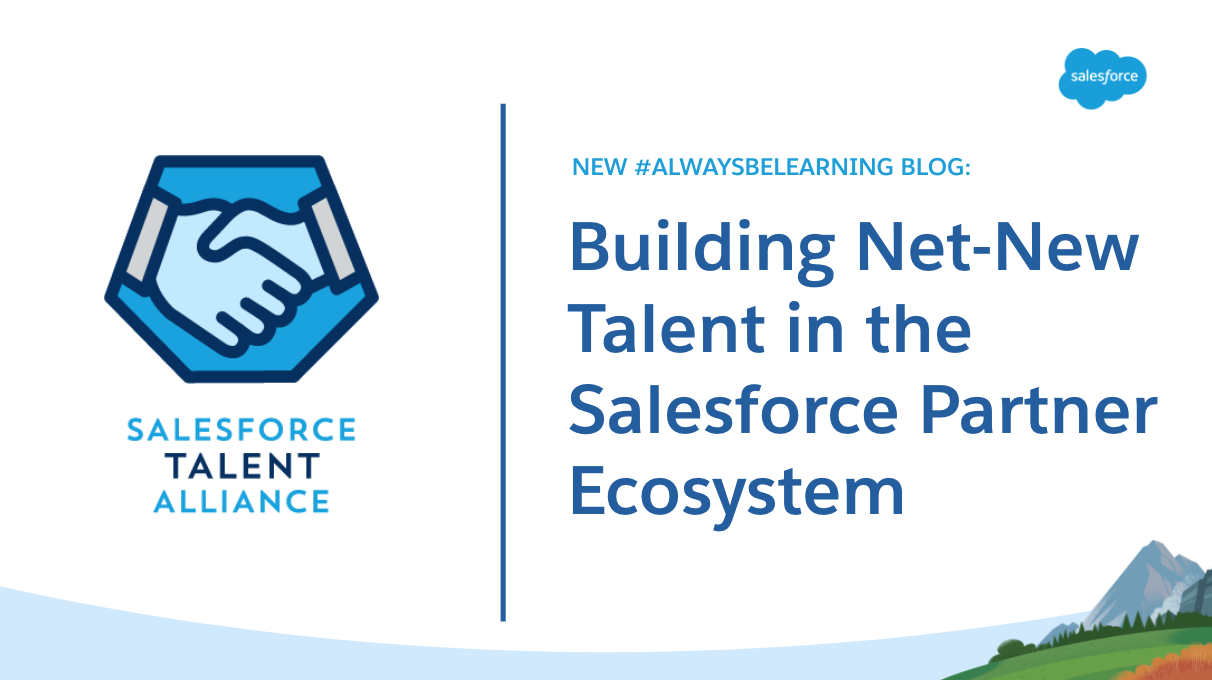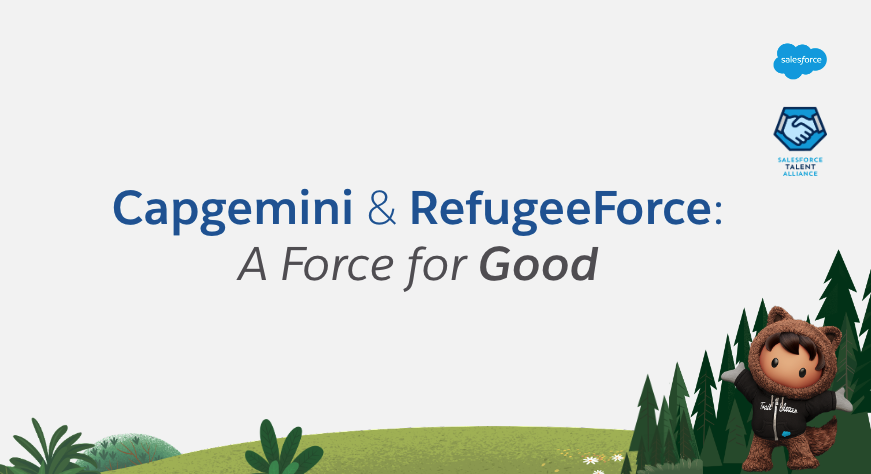We’re in the middle of a global skills shortage. Talent has become increasingly difficult to find, and the fabled “Great Resignation” has only added to the problem, making finding (and holding on to) skilled staff an ever-increasing issue. We’re also currently experiencing the displacement of people on a massive scale, as war and famine force them to seek refuge in countries across the world.
Two unrelated situations lead to an idea and an opportunity
What if you could help the plight of refugees and, at the same time, begin to solve the talent shortage? That’s the basis for RefugeeForce, a new initiative that sets out to train and find employment for refugees within the Salesforce ecosystem. Niels Bryan-Low, Salesforce Platform Director at Capgemini, now champions this initiative in the United Kingdom.
“There are folks who are, sadly, moved from their homes because of crisis, war, [and] famine, who may have all kinds of incredible skills and talents. And they can be retrained in technology,” says Niels.
Refugees in the UK: The Figures
55,146 asylum applications from January to March 2022
91,000 Ukrainian refugees in the UK
4X: The unemployment rate among refugees is four times the national average.
20% of refugees take any available job, rather than using their skills and experience.
Golden beginnings
Gaspar Rodriguez, Co-Founder and Director at RefugeeForce, originally conceived of the idea to retrain refugees for jobs in tech and launched the initiative in the Netherlands. Niels, who had seen Gaspar receive the Golden Hoodie from Salesforce for his efforts, was immediately taken with the idea.
“I literally called Gaspar, [messaged] him on LinkedIn [and] said ‘Hey, you seem to be solving a problem that Capgemini has. Would you be interested in coming to the UK to launch the program here?’ And he jumped at the chance!”
Getting up and running
RefugeeForce rolled out in the first quarter of 2022 with an initial cohort of ten participants from diverse backgrounds, including a PhD, two MBAs, and people hailing from everywhere from Eritrea to Turkey. Niels was determined that RefugeeForce would be about opportunity, not charity.
“We encouraged [candidates] to apply for roles that were open, [but added that] there was no leg up given, or expected.”
At the end of the pilot program, Capgemini had offered four of the original ten RefugeeForce participants a position. “Actually, one person dropped out, for personal reasons, so we offered 44% of the cohort a position … but one chose to take up a position with another company,” adds Niels.
A win for everyone
Niels is under no illusions that this solves all of the complex problems that refugees face. But he does feel that it’s a good start. When it comes to Capgemini, Niels points out that, while their graduates still need to go through a Salesforce bootcamp, RefugeeForce graduates arrive with admin certification already under their belt. “I would expect and hope that these [candidates] have a faster trajectory,” says Niels. “Smart folks who work hard and understand the technology and the value it creates for our shared customers certainly will.”
Niels is confident that Capgemini’s initiative will go from strength to strength. And he’s convinced that other businesses that are thinking about becoming involved in RefugeeForce should absolutely get on board.
“Since we started this program, there are now four million new refugees in Europe alone. Now’s the time [to get on board with RefugeeForce],” adds Niels. “It’s not a zero sum game. You hire some great people, we hire some great people, and we make the whole industry and the whole sector grow and flourish.”
Join the Salesforce Talent Alliance to work with ecosystem partners and workforce development organisations, like RefugeeForce, to build a diverse workforce around the globe.



